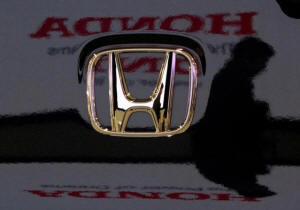|
Honda engineer debunks
own claim about cause of Takata air bag failures
 Send a link to a friend
Send a link to a friend
 [June 24, 2017]
By Joseph White [June 24, 2017]
By Joseph White
DETROIT (Reuters) - Honda Motor Co <7267.T>
on Friday released a 2013 email in which one of its engineers suggested
that he knew some hidden truth about "the root cause" of Takata Corp
<7312.T> air bag failures, but the engineer later said he was mistaken.
The engineer's email was disclosed in a statement from Honda as part of
its defense in a class action suit in Florida, where plaintiffs are
seeking compensation for the lost value of vehicles due to defects in
Takata air bag inflators.
The inflators can explode with excessive force, launching metal shrapnel
at passengers in cars and trucks.
The inflators prompted the automotive industry's largest ever safety
recall and have been linked to at least 16 deaths worldwide. Nine of the
11 U.S. deaths have been reported in 2001-2003 model Honda and Acura
vehicles

The engineer's July 18, 2013 email, originally written in Japanese and
translated by Honda, is part of an exchange with a colleague at the
automaker.
"I am a witness in the dark who knows the truth about Takata's inflator
recall," the engineer, whose name is blacked out in Honda's statement,
wrote in his email. "If I say something to NHTSA, it will cause a
complete reversal in the auto industry which adopted Takata inflators,"
added the engineer, who told his colleague he had been taken off air
bag-related work by Honda because of his supposed inside knowledge.
NHTSA is the acronym of the U.S. National Highway Traffic Safety
Administration.
In a sworn affidavit filed with a federal court and dated June 1, 2017,
the engineer acknowledged he had been mistaken, however.
[to top of second column] |

A visitor and the logo of Honda Motor Co are reflected on a Honda
car at the company's headquarters in Tokyo January 30, 2009.
REUTERS/Toru Hanai/File Photo

When he wrote email to his colleague, he was referring to an Oct. 16, 1999 event
in which a prototype Takata air bag inflator ruptured, the engineer stated.
Based on later findings by the NHTSA, "I now understand that I was incorrect and
the root cause of the field events is not related to the root cause of the
October 1999 rupture," he said.
Honda did not name the engineer. But it said he was still employed by the
company and that while it had no objection to the engineer testifying in the
Florida case he had declined to do so.
Honda also reiterated its position that it did not conceal knowledge of Takata
defects, but instead was itself a victim of deception by Takata officials.
Peter Prieto, a lawyer for consumer plaintiffs in the Takata air bag litigation,
said in a statement that Honda had refused to present the engineer for a
deposition.
The engineer's email was "just one of the many we have uncovered establishing
that Honda was well aware of the public safety risks posed by Takata’s airbags,"
Prieto said.
(Reporting by Joe White; Editing by Tom Brown)
[© 2017 Thomson Reuters. All rights
reserved.] Copyright 2017 Reuters. All rights reserved. This material may not be published,
broadcast, rewritten or redistributed.
 |